Management Accounting Assignment: Financial Reporting & Governance
VerifiedAdded on 2023/06/12
|9
|1994
|385
Essay
AI Summary
This essay delves into the critical relationship between financial reporting and corporate governance, emphasizing their significance for investors, management, and auditors. It highlights historical accounting scandals, such as Enron and WorldCom, which underscore the importance of ethical accounting practices and robust corporate governance policies. The analysis covers the role of auditors, the necessity of transparency, and the impact of regulations like the Sarbanes-Oxley Act. Furthermore, the essay discusses the threats to auditor independence and the importance of ethical conduct in ensuring accurate financial reporting. The conclusion emphasizes that corporate governance and sustainability are crucial for stakeholders, promoting transparency and reliability in financial statements.
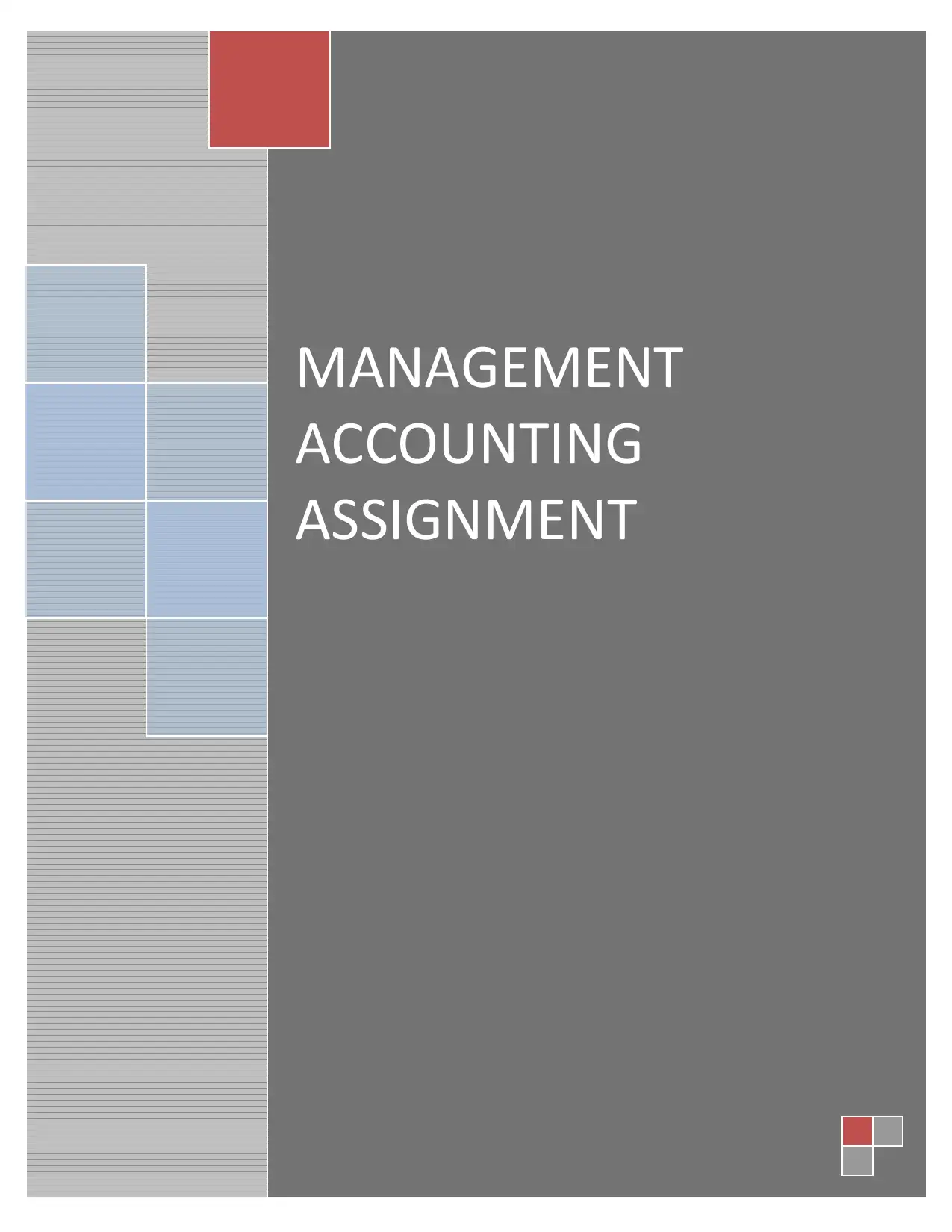
The
MANAGEMENT
ACCOUNTING
ASSIGNMENT
MANAGEMENT
ACCOUNTING
ASSIGNMENT
Paraphrase This Document
Need a fresh take? Get an instant paraphrase of this document with our AI Paraphraser
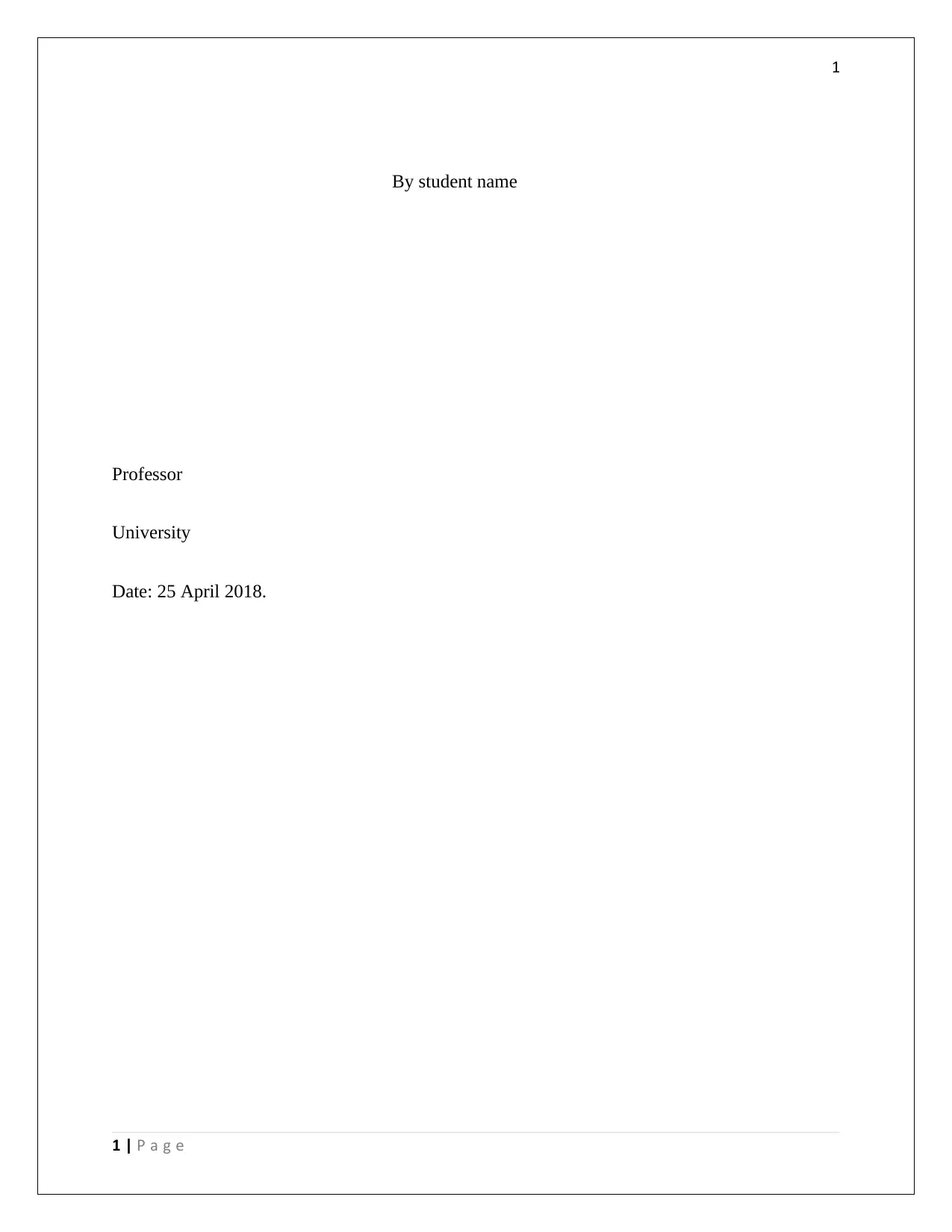
1
By student name
Professor
University
Date: 25 April 2018.
1 | P a g e
By student name
Professor
University
Date: 25 April 2018.
1 | P a g e
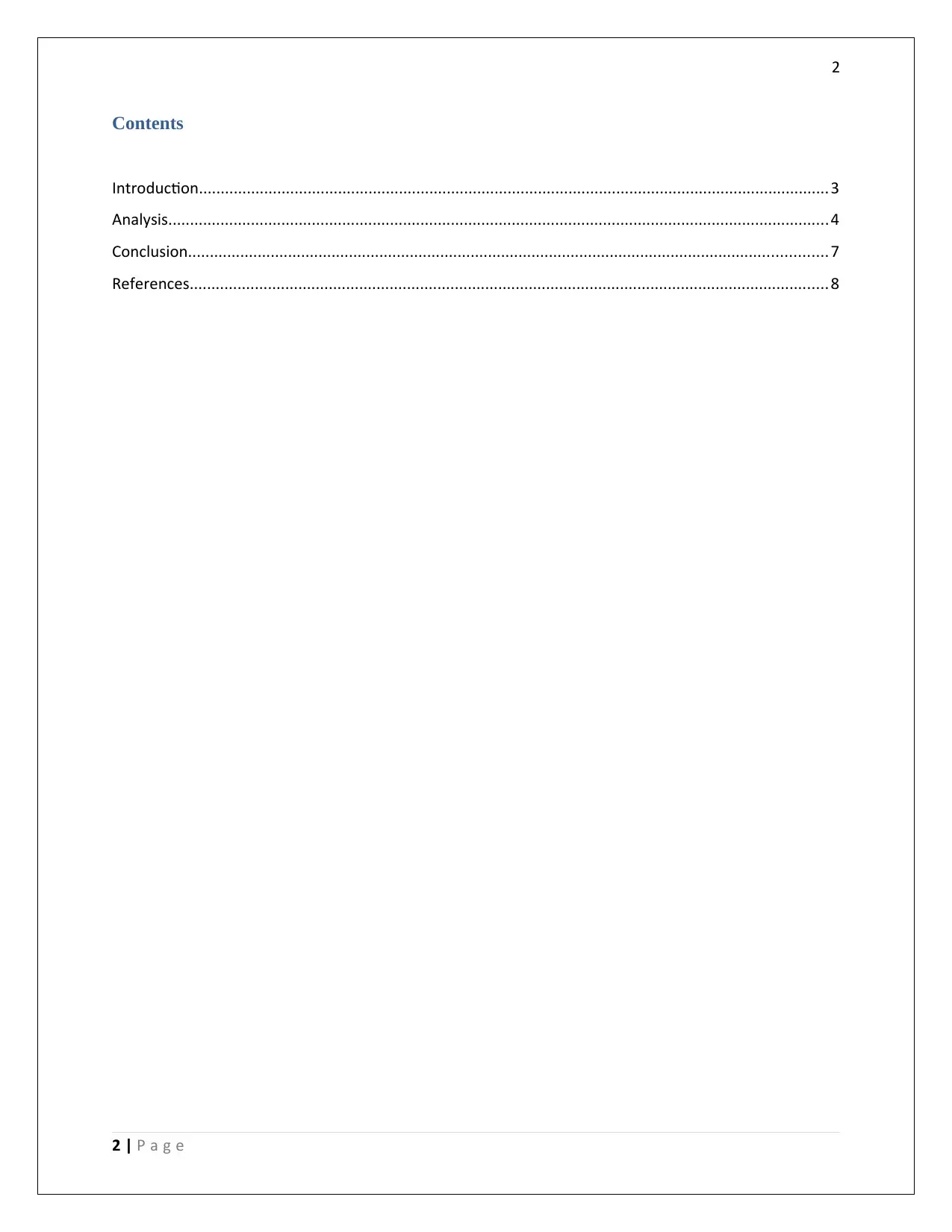
2
Contents
Introduction.................................................................................................................................................3
Analysis........................................................................................................................................................4
Conclusion...................................................................................................................................................7
References...................................................................................................................................................8
2 | P a g e
Contents
Introduction.................................................................................................................................................3
Analysis........................................................................................................................................................4
Conclusion...................................................................................................................................................7
References...................................................................................................................................................8
2 | P a g e
⊘ This is a preview!⊘
Do you want full access?
Subscribe today to unlock all pages.

Trusted by 1+ million students worldwide
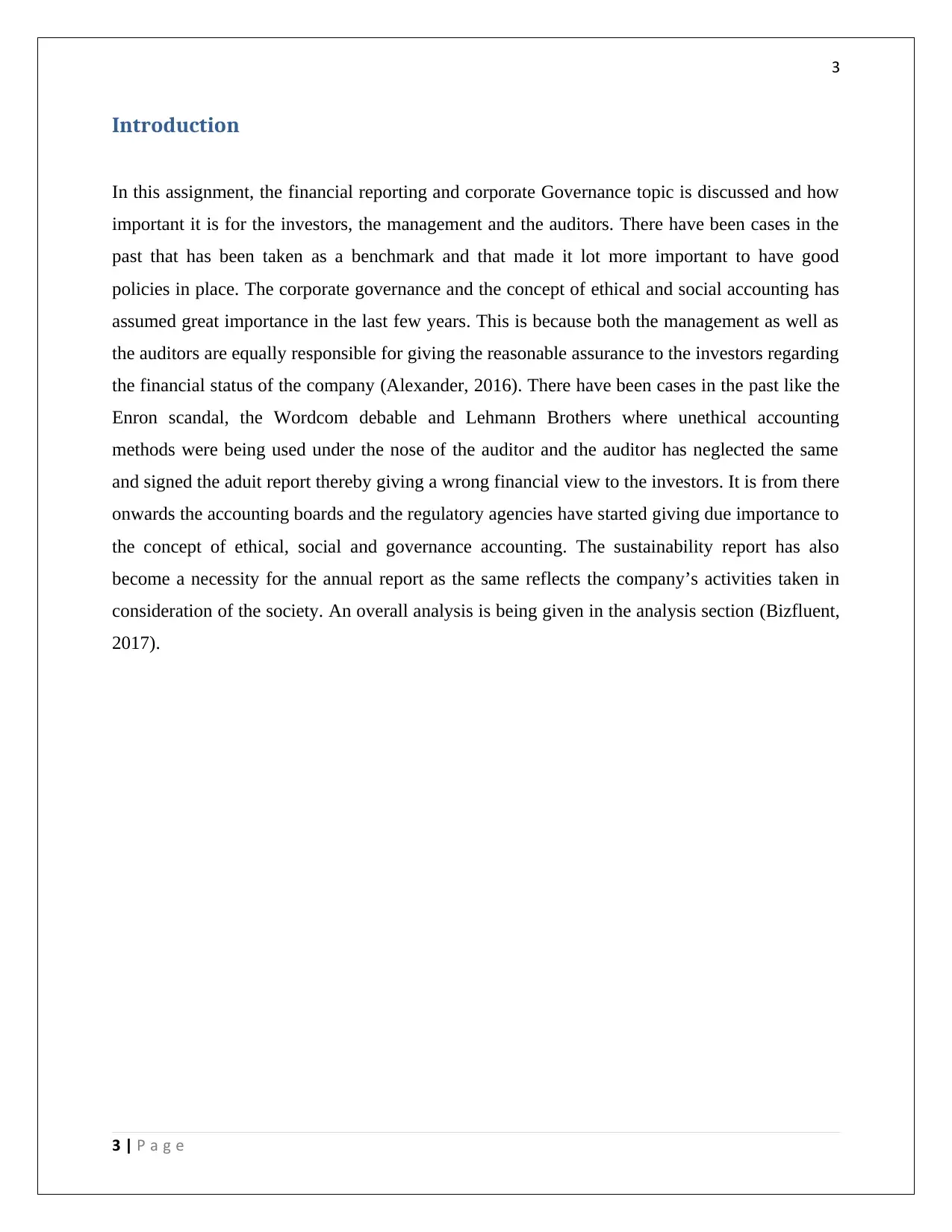
3
Introduction
In this assignment, the financial reporting and corporate Governance topic is discussed and how
important it is for the investors, the management and the auditors. There have been cases in the
past that has been taken as a benchmark and that made it lot more important to have good
policies in place. The corporate governance and the concept of ethical and social accounting has
assumed great importance in the last few years. This is because both the management as well as
the auditors are equally responsible for giving the reasonable assurance to the investors regarding
the financial status of the company (Alexander, 2016). There have been cases in the past like the
Enron scandal, the Wordcom debable and Lehmann Brothers where unethical accounting
methods were being used under the nose of the auditor and the auditor has neglected the same
and signed the aduit report thereby giving a wrong financial view to the investors. It is from there
onwards the accounting boards and the regulatory agencies have started giving due importance to
the concept of ethical, social and governance accounting. The sustainability report has also
become a necessity for the annual report as the same reflects the company’s activities taken in
consideration of the society. An overall analysis is being given in the analysis section (Bizfluent,
2017).
3 | P a g e
Introduction
In this assignment, the financial reporting and corporate Governance topic is discussed and how
important it is for the investors, the management and the auditors. There have been cases in the
past that has been taken as a benchmark and that made it lot more important to have good
policies in place. The corporate governance and the concept of ethical and social accounting has
assumed great importance in the last few years. This is because both the management as well as
the auditors are equally responsible for giving the reasonable assurance to the investors regarding
the financial status of the company (Alexander, 2016). There have been cases in the past like the
Enron scandal, the Wordcom debable and Lehmann Brothers where unethical accounting
methods were being used under the nose of the auditor and the auditor has neglected the same
and signed the aduit report thereby giving a wrong financial view to the investors. It is from there
onwards the accounting boards and the regulatory agencies have started giving due importance to
the concept of ethical, social and governance accounting. The sustainability report has also
become a necessity for the annual report as the same reflects the company’s activities taken in
consideration of the society. An overall analysis is being given in the analysis section (Bizfluent,
2017).
3 | P a g e
Paraphrase This Document
Need a fresh take? Get an instant paraphrase of this document with our AI Paraphraser
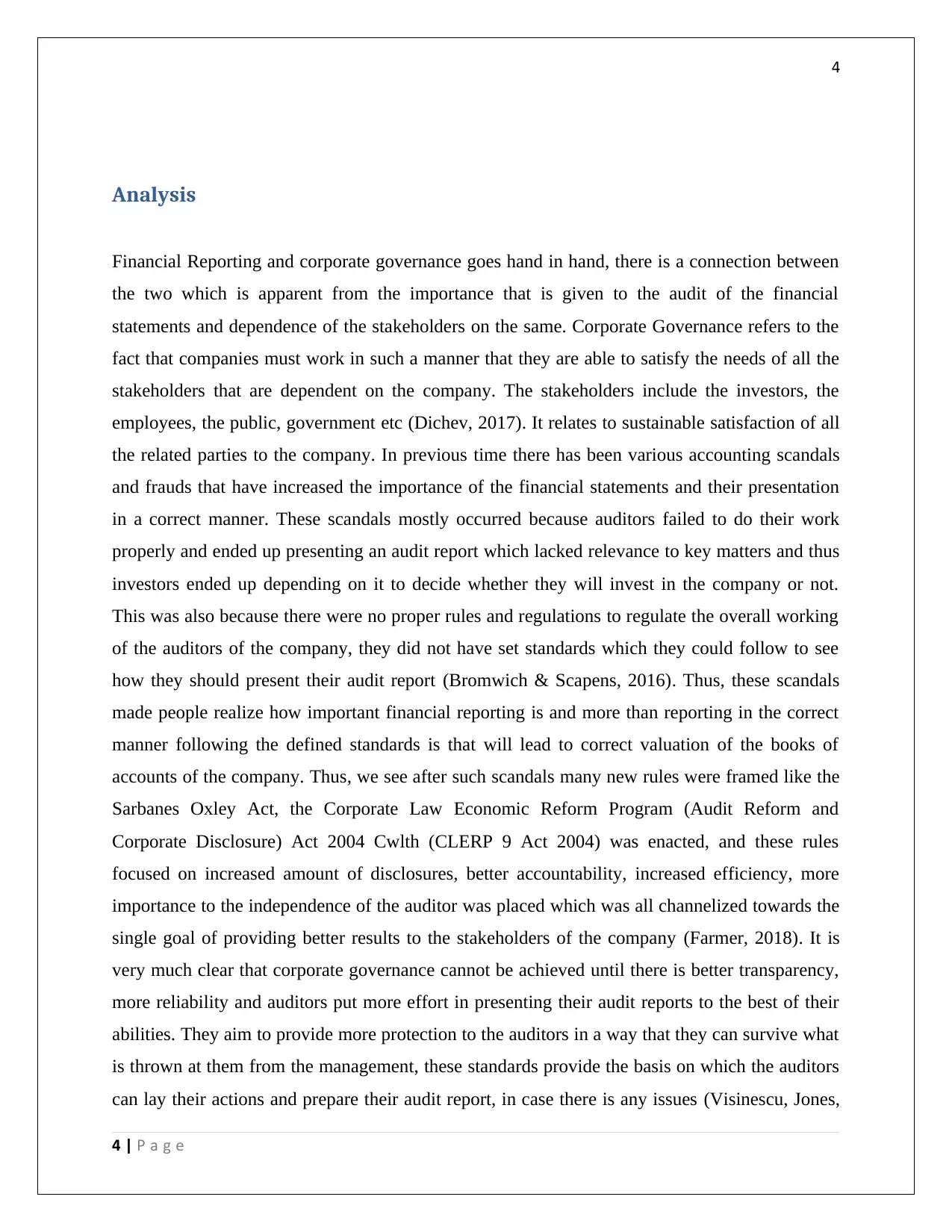
4
Analysis
Financial Reporting and corporate governance goes hand in hand, there is a connection between
the two which is apparent from the importance that is given to the audit of the financial
statements and dependence of the stakeholders on the same. Corporate Governance refers to the
fact that companies must work in such a manner that they are able to satisfy the needs of all the
stakeholders that are dependent on the company. The stakeholders include the investors, the
employees, the public, government etc (Dichev, 2017). It relates to sustainable satisfaction of all
the related parties to the company. In previous time there has been various accounting scandals
and frauds that have increased the importance of the financial statements and their presentation
in a correct manner. These scandals mostly occurred because auditors failed to do their work
properly and ended up presenting an audit report which lacked relevance to key matters and thus
investors ended up depending on it to decide whether they will invest in the company or not.
This was also because there were no proper rules and regulations to regulate the overall working
of the auditors of the company, they did not have set standards which they could follow to see
how they should present their audit report (Bromwich & Scapens, 2016). Thus, these scandals
made people realize how important financial reporting is and more than reporting in the correct
manner following the defined standards is that will lead to correct valuation of the books of
accounts of the company. Thus, we see after such scandals many new rules were framed like the
Sarbanes Oxley Act, the Corporate Law Economic Reform Program (Audit Reform and
Corporate Disclosure) Act 2004 Cwlth (CLERP 9 Act 2004) was enacted, and these rules
focused on increased amount of disclosures, better accountability, increased efficiency, more
importance to the independence of the auditor was placed which was all channelized towards the
single goal of providing better results to the stakeholders of the company (Farmer, 2018). It is
very much clear that corporate governance cannot be achieved until there is better transparency,
more reliability and auditors put more effort in presenting their audit reports to the best of their
abilities. They aim to provide more protection to the auditors in a way that they can survive what
is thrown at them from the management, these standards provide the basis on which the auditors
can lay their actions and prepare their audit report, in case there is any issues (Visinescu, Jones,
4 | P a g e
Analysis
Financial Reporting and corporate governance goes hand in hand, there is a connection between
the two which is apparent from the importance that is given to the audit of the financial
statements and dependence of the stakeholders on the same. Corporate Governance refers to the
fact that companies must work in such a manner that they are able to satisfy the needs of all the
stakeholders that are dependent on the company. The stakeholders include the investors, the
employees, the public, government etc (Dichev, 2017). It relates to sustainable satisfaction of all
the related parties to the company. In previous time there has been various accounting scandals
and frauds that have increased the importance of the financial statements and their presentation
in a correct manner. These scandals mostly occurred because auditors failed to do their work
properly and ended up presenting an audit report which lacked relevance to key matters and thus
investors ended up depending on it to decide whether they will invest in the company or not.
This was also because there were no proper rules and regulations to regulate the overall working
of the auditors of the company, they did not have set standards which they could follow to see
how they should present their audit report (Bromwich & Scapens, 2016). Thus, these scandals
made people realize how important financial reporting is and more than reporting in the correct
manner following the defined standards is that will lead to correct valuation of the books of
accounts of the company. Thus, we see after such scandals many new rules were framed like the
Sarbanes Oxley Act, the Corporate Law Economic Reform Program (Audit Reform and
Corporate Disclosure) Act 2004 Cwlth (CLERP 9 Act 2004) was enacted, and these rules
focused on increased amount of disclosures, better accountability, increased efficiency, more
importance to the independence of the auditor was placed which was all channelized towards the
single goal of providing better results to the stakeholders of the company (Farmer, 2018). It is
very much clear that corporate governance cannot be achieved until there is better transparency,
more reliability and auditors put more effort in presenting their audit reports to the best of their
abilities. They aim to provide more protection to the auditors in a way that they can survive what
is thrown at them from the management, these standards provide the basis on which the auditors
can lay their actions and prepare their audit report, in case there is any issues (Visinescu, Jones,
4 | P a g e
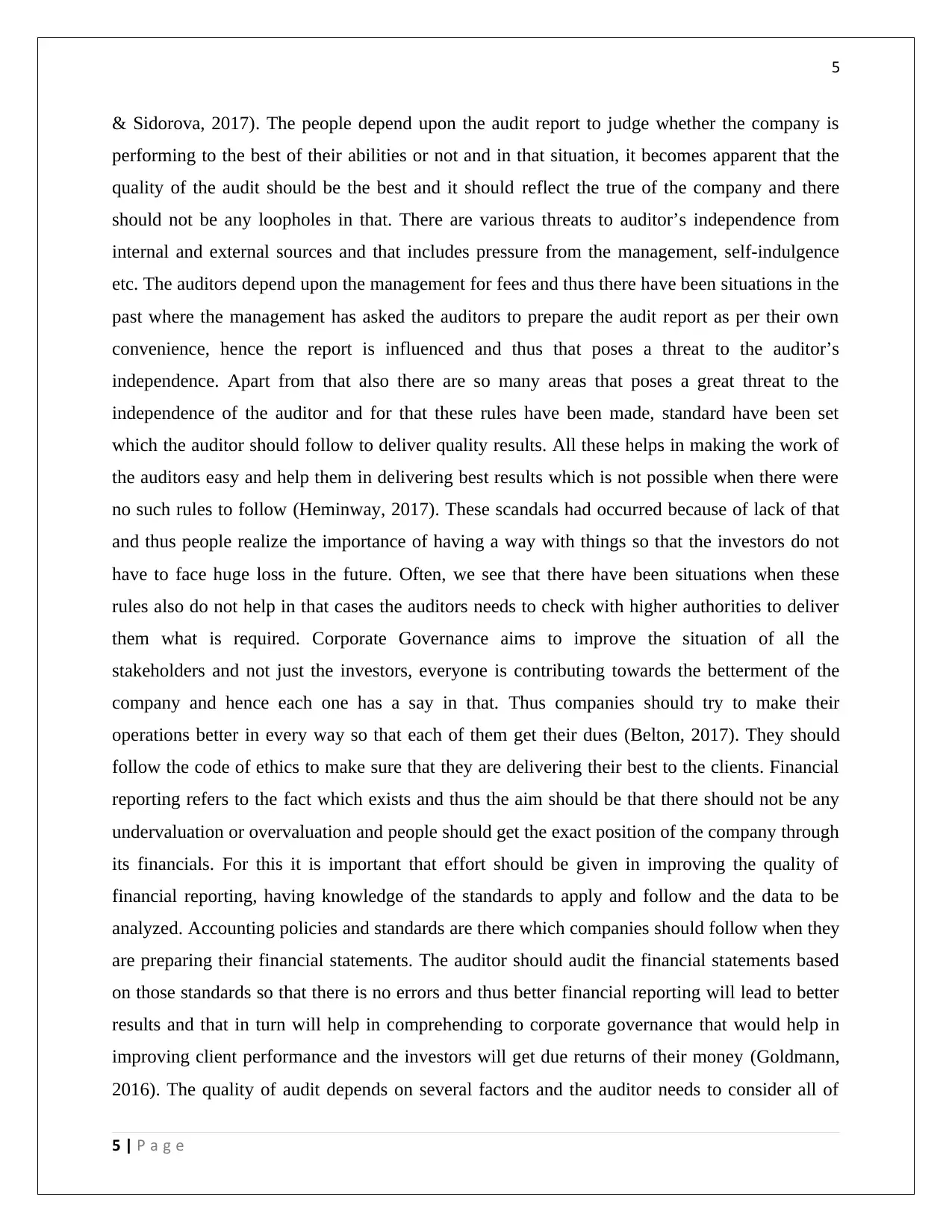
5
& Sidorova, 2017). The people depend upon the audit report to judge whether the company is
performing to the best of their abilities or not and in that situation, it becomes apparent that the
quality of the audit should be the best and it should reflect the true of the company and there
should not be any loopholes in that. There are various threats to auditor’s independence from
internal and external sources and that includes pressure from the management, self-indulgence
etc. The auditors depend upon the management for fees and thus there have been situations in the
past where the management has asked the auditors to prepare the audit report as per their own
convenience, hence the report is influenced and thus that poses a threat to the auditor’s
independence. Apart from that also there are so many areas that poses a great threat to the
independence of the auditor and for that these rules have been made, standard have been set
which the auditor should follow to deliver quality results. All these helps in making the work of
the auditors easy and help them in delivering best results which is not possible when there were
no such rules to follow (Heminway, 2017). These scandals had occurred because of lack of that
and thus people realize the importance of having a way with things so that the investors do not
have to face huge loss in the future. Often, we see that there have been situations when these
rules also do not help in that cases the auditors needs to check with higher authorities to deliver
them what is required. Corporate Governance aims to improve the situation of all the
stakeholders and not just the investors, everyone is contributing towards the betterment of the
company and hence each one has a say in that. Thus companies should try to make their
operations better in every way so that each of them get their dues (Belton, 2017). They should
follow the code of ethics to make sure that they are delivering their best to the clients. Financial
reporting refers to the fact which exists and thus the aim should be that there should not be any
undervaluation or overvaluation and people should get the exact position of the company through
its financials. For this it is important that effort should be given in improving the quality of
financial reporting, having knowledge of the standards to apply and follow and the data to be
analyzed. Accounting policies and standards are there which companies should follow when they
are preparing their financial statements. The auditor should audit the financial statements based
on those standards so that there is no errors and thus better financial reporting will lead to better
results and that in turn will help in comprehending to corporate governance that would help in
improving client performance and the investors will get due returns of their money (Goldmann,
2016). The quality of audit depends on several factors and the auditor needs to consider all of
5 | P a g e
& Sidorova, 2017). The people depend upon the audit report to judge whether the company is
performing to the best of their abilities or not and in that situation, it becomes apparent that the
quality of the audit should be the best and it should reflect the true of the company and there
should not be any loopholes in that. There are various threats to auditor’s independence from
internal and external sources and that includes pressure from the management, self-indulgence
etc. The auditors depend upon the management for fees and thus there have been situations in the
past where the management has asked the auditors to prepare the audit report as per their own
convenience, hence the report is influenced and thus that poses a threat to the auditor’s
independence. Apart from that also there are so many areas that poses a great threat to the
independence of the auditor and for that these rules have been made, standard have been set
which the auditor should follow to deliver quality results. All these helps in making the work of
the auditors easy and help them in delivering best results which is not possible when there were
no such rules to follow (Heminway, 2017). These scandals had occurred because of lack of that
and thus people realize the importance of having a way with things so that the investors do not
have to face huge loss in the future. Often, we see that there have been situations when these
rules also do not help in that cases the auditors needs to check with higher authorities to deliver
them what is required. Corporate Governance aims to improve the situation of all the
stakeholders and not just the investors, everyone is contributing towards the betterment of the
company and hence each one has a say in that. Thus companies should try to make their
operations better in every way so that each of them get their dues (Belton, 2017). They should
follow the code of ethics to make sure that they are delivering their best to the clients. Financial
reporting refers to the fact which exists and thus the aim should be that there should not be any
undervaluation or overvaluation and people should get the exact position of the company through
its financials. For this it is important that effort should be given in improving the quality of
financial reporting, having knowledge of the standards to apply and follow and the data to be
analyzed. Accounting policies and standards are there which companies should follow when they
are preparing their financial statements. The auditor should audit the financial statements based
on those standards so that there is no errors and thus better financial reporting will lead to better
results and that in turn will help in comprehending to corporate governance that would help in
improving client performance and the investors will get due returns of their money (Goldmann,
2016). The quality of audit depends on several factors and the auditor needs to consider all of
5 | P a g e
⊘ This is a preview!⊘
Do you want full access?
Subscribe today to unlock all pages.

Trusted by 1+ million students worldwide
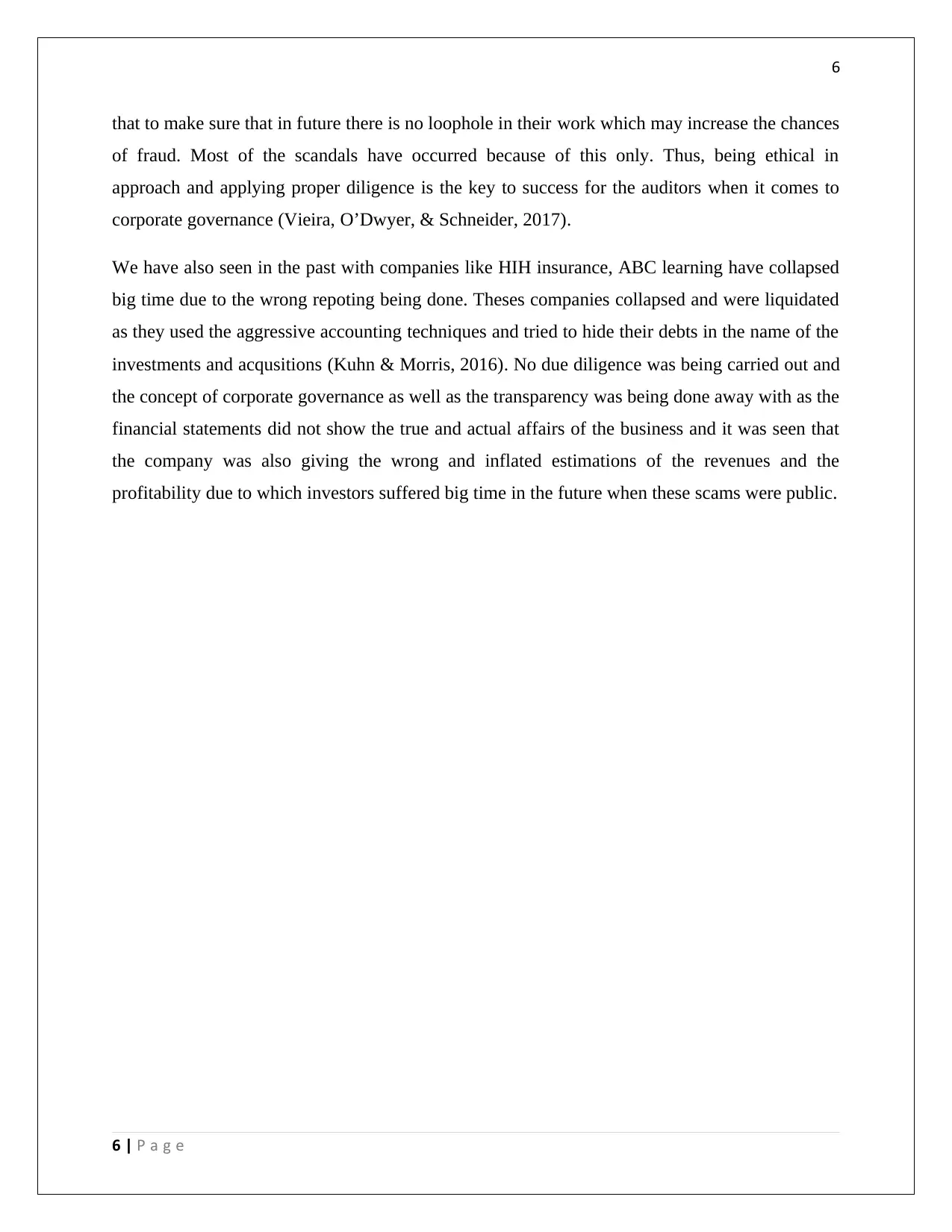
6
that to make sure that in future there is no loophole in their work which may increase the chances
of fraud. Most of the scandals have occurred because of this only. Thus, being ethical in
approach and applying proper diligence is the key to success for the auditors when it comes to
corporate governance (Vieira, O’Dwyer, & Schneider, 2017).
We have also seen in the past with companies like HIH insurance, ABC learning have collapsed
big time due to the wrong repoting being done. Theses companies collapsed and were liquidated
as they used the aggressive accounting techniques and tried to hide their debts in the name of the
investments and acqusitions (Kuhn & Morris, 2016). No due diligence was being carried out and
the concept of corporate governance as well as the transparency was being done away with as the
financial statements did not show the true and actual affairs of the business and it was seen that
the company was also giving the wrong and inflated estimations of the revenues and the
profitability due to which investors suffered big time in the future when these scams were public.
6 | P a g e
that to make sure that in future there is no loophole in their work which may increase the chances
of fraud. Most of the scandals have occurred because of this only. Thus, being ethical in
approach and applying proper diligence is the key to success for the auditors when it comes to
corporate governance (Vieira, O’Dwyer, & Schneider, 2017).
We have also seen in the past with companies like HIH insurance, ABC learning have collapsed
big time due to the wrong repoting being done. Theses companies collapsed and were liquidated
as they used the aggressive accounting techniques and tried to hide their debts in the name of the
investments and acqusitions (Kuhn & Morris, 2016). No due diligence was being carried out and
the concept of corporate governance as well as the transparency was being done away with as the
financial statements did not show the true and actual affairs of the business and it was seen that
the company was also giving the wrong and inflated estimations of the revenues and the
profitability due to which investors suffered big time in the future when these scams were public.
6 | P a g e
Paraphrase This Document
Need a fresh take? Get an instant paraphrase of this document with our AI Paraphraser
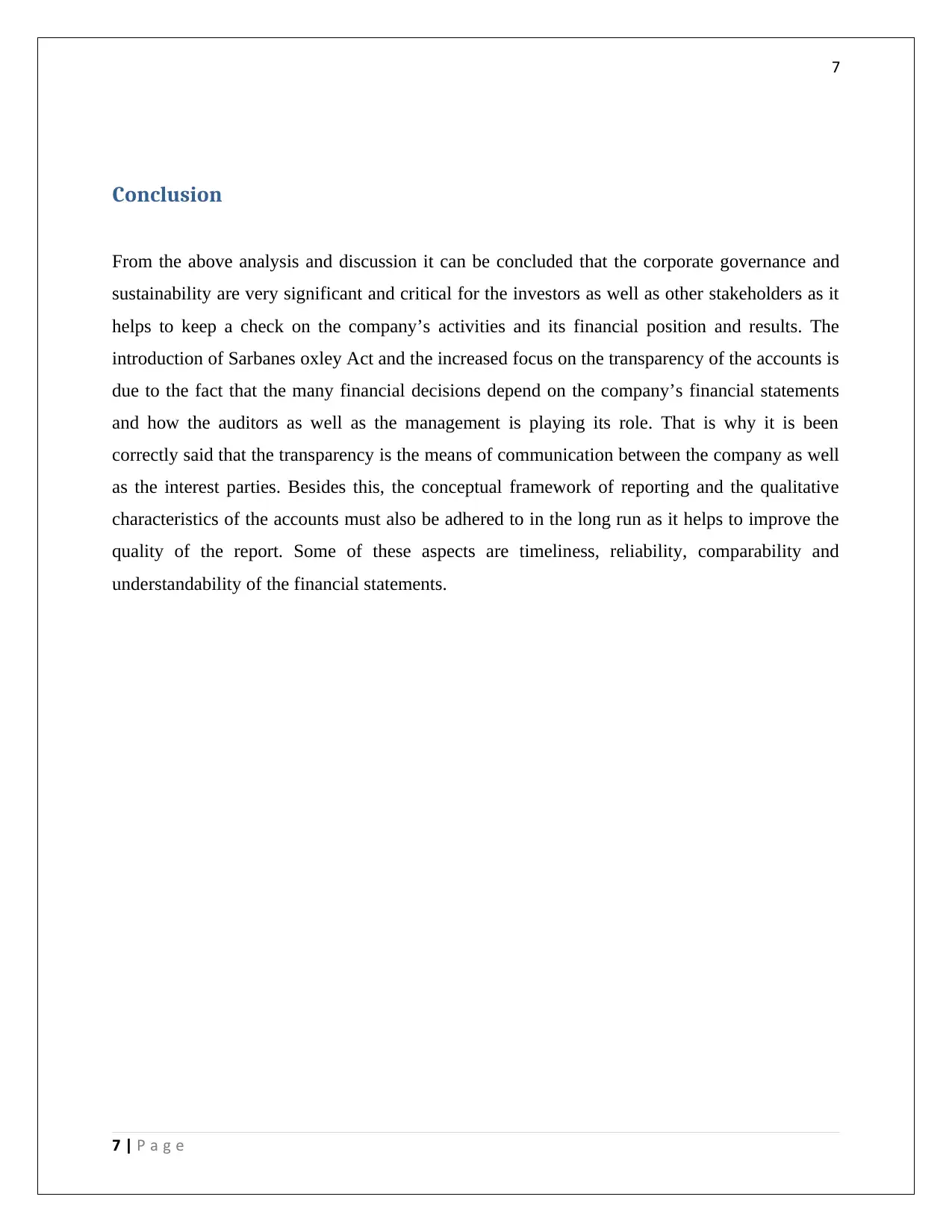
7
Conclusion
From the above analysis and discussion it can be concluded that the corporate governance and
sustainability are very significant and critical for the investors as well as other stakeholders as it
helps to keep a check on the company’s activities and its financial position and results. The
introduction of Sarbanes oxley Act and the increased focus on the transparency of the accounts is
due to the fact that the many financial decisions depend on the company’s financial statements
and how the auditors as well as the management is playing its role. That is why it is been
correctly said that the transparency is the means of communication between the company as well
as the interest parties. Besides this, the conceptual framework of reporting and the qualitative
characteristics of the accounts must also be adhered to in the long run as it helps to improve the
quality of the report. Some of these aspects are timeliness, reliability, comparability and
understandability of the financial statements.
7 | P a g e
Conclusion
From the above analysis and discussion it can be concluded that the corporate governance and
sustainability are very significant and critical for the investors as well as other stakeholders as it
helps to keep a check on the company’s activities and its financial position and results. The
introduction of Sarbanes oxley Act and the increased focus on the transparency of the accounts is
due to the fact that the many financial decisions depend on the company’s financial statements
and how the auditors as well as the management is playing its role. That is why it is been
correctly said that the transparency is the means of communication between the company as well
as the interest parties. Besides this, the conceptual framework of reporting and the qualitative
characteristics of the accounts must also be adhered to in the long run as it helps to improve the
quality of the report. Some of these aspects are timeliness, reliability, comparability and
understandability of the financial statements.
7 | P a g e
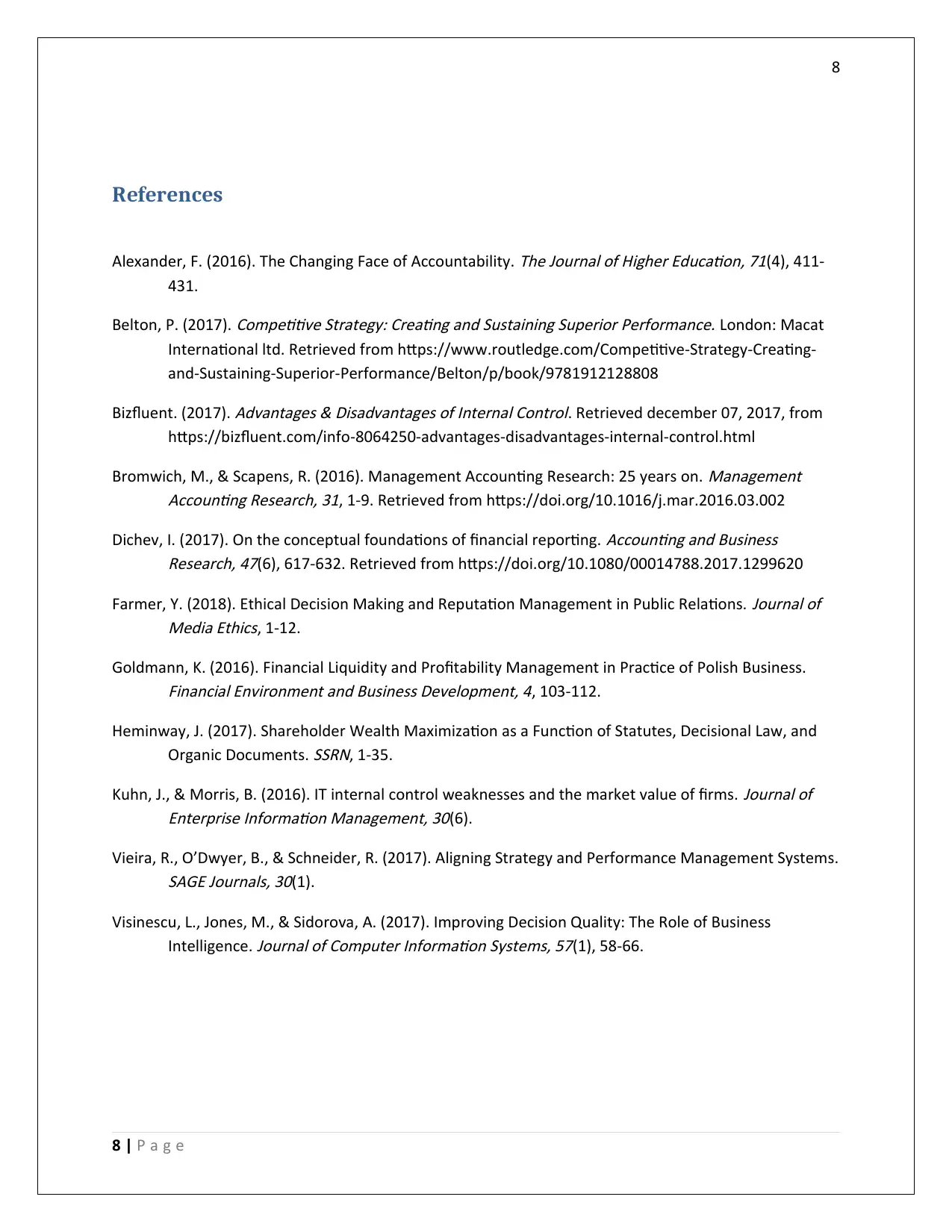
8
References
Alexander, F. (2016). The Changing Face of Accountability.
The Journal of Higher Education, 71(4), 411-
431.
Belton, P. (2017).
Competitive Strategy: Creating and Sustaining Superior Performance. London: Macat
International ltd. Retrieved from https://www.routledge.com/Competitive-Strategy-Creating-
and-Sustaining-Superior-Performance/Belton/p/book/9781912128808
Bizfluent. (2017).
Advantages & Disadvantages of Internal Control. Retrieved december 07, 2017, from
https://bizfluent.com/info-8064250-advantages-disadvantages-internal-control.html
Bromwich, M., & Scapens, R. (2016). Management Accounting Research: 25 years on.
Management
Accounting Research, 31, 1-9. Retrieved from https://doi.org/10.1016/j.mar.2016.03.002
Dichev, I. (2017). On the conceptual foundations of financial reporting.
Accounting and Business
Research, 47(6), 617-632. Retrieved from https://doi.org/10.1080/00014788.2017.1299620
Farmer, Y. (2018). Ethical Decision Making and Reputation Management in Public Relations.
Journal of
Media Ethics, 1-12.
Goldmann, K. (2016). Financial Liquidity and Profitability Management in Practice of Polish Business.
Financial Environment and Business Development, 4, 103-112.
Heminway, J. (2017). Shareholder Wealth Maximization as a Function of Statutes, Decisional Law, and
Organic Documents.
SSRN, 1-35.
Kuhn, J., & Morris, B. (2016). IT internal control weaknesses and the market value of firms.
Journal of
Enterprise Information Management, 30(6).
Vieira, R., O’Dwyer, B., & Schneider, R. (2017). Aligning Strategy and Performance Management Systems.
SAGE Journals, 30(1).
Visinescu, L., Jones, M., & Sidorova, A. (2017). Improving Decision Quality: The Role of Business
Intelligence.
Journal of Computer Information Systems, 57(1), 58-66.
8 | P a g e
References
Alexander, F. (2016). The Changing Face of Accountability.
The Journal of Higher Education, 71(4), 411-
431.
Belton, P. (2017).
Competitive Strategy: Creating and Sustaining Superior Performance. London: Macat
International ltd. Retrieved from https://www.routledge.com/Competitive-Strategy-Creating-
and-Sustaining-Superior-Performance/Belton/p/book/9781912128808
Bizfluent. (2017).
Advantages & Disadvantages of Internal Control. Retrieved december 07, 2017, from
https://bizfluent.com/info-8064250-advantages-disadvantages-internal-control.html
Bromwich, M., & Scapens, R. (2016). Management Accounting Research: 25 years on.
Management
Accounting Research, 31, 1-9. Retrieved from https://doi.org/10.1016/j.mar.2016.03.002
Dichev, I. (2017). On the conceptual foundations of financial reporting.
Accounting and Business
Research, 47(6), 617-632. Retrieved from https://doi.org/10.1080/00014788.2017.1299620
Farmer, Y. (2018). Ethical Decision Making and Reputation Management in Public Relations.
Journal of
Media Ethics, 1-12.
Goldmann, K. (2016). Financial Liquidity and Profitability Management in Practice of Polish Business.
Financial Environment and Business Development, 4, 103-112.
Heminway, J. (2017). Shareholder Wealth Maximization as a Function of Statutes, Decisional Law, and
Organic Documents.
SSRN, 1-35.
Kuhn, J., & Morris, B. (2016). IT internal control weaknesses and the market value of firms.
Journal of
Enterprise Information Management, 30(6).
Vieira, R., O’Dwyer, B., & Schneider, R. (2017). Aligning Strategy and Performance Management Systems.
SAGE Journals, 30(1).
Visinescu, L., Jones, M., & Sidorova, A. (2017). Improving Decision Quality: The Role of Business
Intelligence.
Journal of Computer Information Systems, 57(1), 58-66.
8 | P a g e
⊘ This is a preview!⊘
Do you want full access?
Subscribe today to unlock all pages.

Trusted by 1+ million students worldwide
1 out of 9
Related Documents
Your All-in-One AI-Powered Toolkit for Academic Success.
+13062052269
info@desklib.com
Available 24*7 on WhatsApp / Email
![[object Object]](/_next/static/media/star-bottom.7253800d.svg)
Unlock your academic potential
Copyright © 2020–2026 A2Z Services. All Rights Reserved. Developed and managed by ZUCOL.





